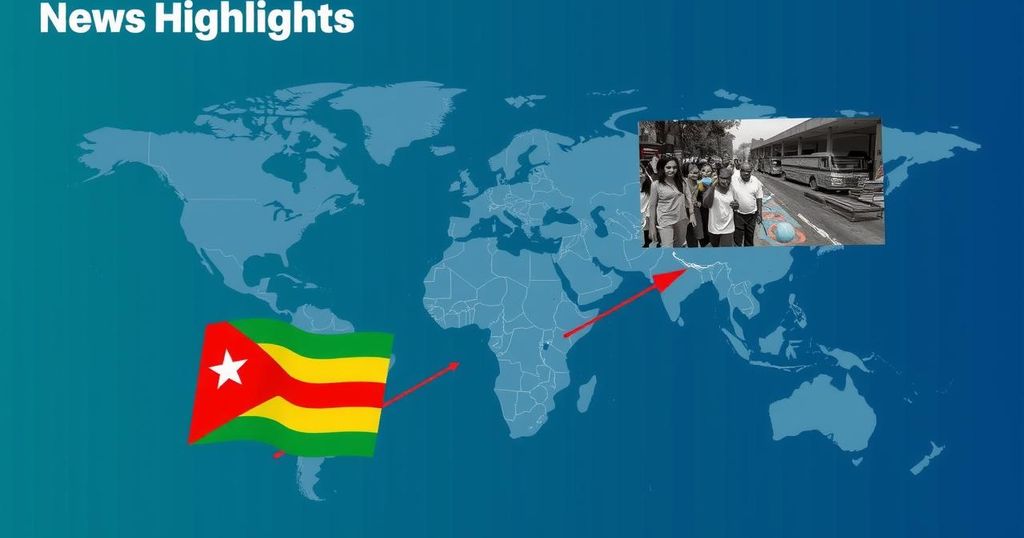Global Health and Humanitarian Updates: Egypt, Cuba, Mozambique, and South Sudan
Egypt has been declared malaria-free by the WHO, marking a significant milestone in public health. In Cuba, millions face extended power outages due to a tropical storm, prompting UN support. Mozambique is experiencing political unrest following the assassination of opposition figures, while WHO efforts in South Sudan aim to combat severe flooding’s humanitarian impacts.
In a significant public health milestone, Egypt has been acknowledged by the World Health Organization (WHO) as being malaria-free, culminating a hundred-year endeavor to eliminate this ancient disease. WHO Director-General Tedros Adhanom-Ghebreyesus remarked on this achievement, stating, “Malaria is as old as Egyptian civilisation itself, but the disease that plagued pharaohs now belongs to its history and not its future.” This recognition positions Egypt as the third nation in the WHO’s Eastern Mediterranean region to attain such status, following the United Arab Emirates and Morocco, enhancing the global roster of nations free from malaria. Meanwhile, the United Nations is poised to offer assistance to Cuba, where a tropical storm has escalated a crisis characterized by extensive power outages impacting approximately 10 million citizens. As Tropical Storm Oscar progresses, the UN has prepared to mobilize technical resources to address the challenges posed by infrastructure deficiencies exacerbated by U.S. sanctions and economic constraints. UN Deputy Spokesperson Farhan Haq reported significant rainfall in Cuba, which could lead to severe flooding. In Mozambique, following the disturbing assassination of two opposition figures amidst electoral tensions, UN Secretary-General António Guterres has called for a thorough investigation and urged citizens to remain calm. Guterres’s statement emphasized the importance of maintaining peace during this critical period for the nation, which has experienced prolonged political unrest. Finally, the WHO is addressing a humanitarian crisis in South Sudan, where unprecedented flooding has adversely affected nearly 890,000 individuals, disrupting health services and heightening vulnerability to diseases such as cholera and malaria. With a substantial distribution of emergency health kits already underway, the WHO aims to alleviate suffering in this beleaguered nation, demonstrating its commitment to global health amid worsening conditions.
This article discusses recent significant global public health and humanitarian developments. Egypt’s declaration as malaria-free by the WHO underscores a historic health victory and reflects the successful eradication strategies implemented over many years. The situation in Cuba highlights ongoing challenges from natural disasters combined with socioeconomic issues, exacerbated by international sanctions. In Mozambique, the political climate remains tense following violent acts against opposition figures, deemed critical by the UN amid calls for stability. Lastly, South Sudan faces a severe humanitarian crisis, prompting international support to combat the effects of climate-related flooding.
The recent developments highlight major achievements and challenges in global health and political stability. Egypt’s certification as malaria-free reflects effective public health efforts, while Cuba requires urgent international assistance to mitigate the impacts of natural disasters. The situation in Mozambique calls for peaceful resolutions to political disputes, and South Sudan’s struggles illustrate the need for comprehensive humanitarian support. These events underscore the crucial role of international organizations such as the WHO and the UN in addressing global health crises and political unrest.
Original Source: news.un.org




Post Comment